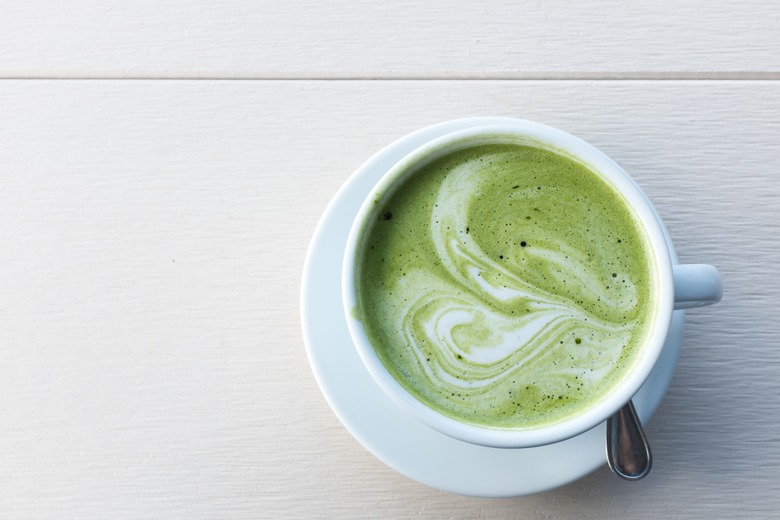Starbucks Matcha Isn't As Healthy As You Think It Is
Everyone's heard of matcha tea, the calming, immune-boosting green powder that's said to work wonders for your body.
Matcha tea has been proven to help with many things, including relaxation, meditation, and providing essential vitamins and nutrients. (You can thank the amino acid L-theanine in the leaves used to make matcha for that one.) In addition, it offers potassium, vitamins A and C, protein, and calcium. These nutrients give your immune system the kick it needs to fight off sickness and heal your wounds.
The benefits of matcha tea are impressive, making it worth a try for anyone interested in kicking his or her coffee habit and switching to a more soothing, less-caffeinated alternative. Starbucks offers matcha on its menu, but there's a catch: The average cup contains around 30 grams of sugar.
If you're making matcha tea at home (using hot water), you don't need to be concerned with sugar. If you're using true, traditional matcha powder, there should be no added sugar.
Unfortunately, there have been many matcha-lovers out there who have expressed their sincere disappointment with Starbucks and its matcha blend because, according to these customers, it's nearly 50 percent sugar.
Many are scolding Starbucks for masking this deadly drink as a purifying immune-booster, but if you look up the nutritional information on the iced green latte and hot green tea latte, they're really not hiding anything.
Let us take a look at the grande green tea latte. According to the Starbucks nutritional information, with nonfat milk, a single one of these bad boys clocks in at 190 calories, containing 140 mg of sodium and whopping 33 grams of sugar. For the iced option, it's nearly the same situation — totaling at 31 grams of sugar.
If you take a look at the ingredients, there are only three: milk, ice, and matcha blend. After the matcha tea blend ingredient, the list reads, "Sugar, ground Japanese Green tea." Think about it this way: When referencing the matcha powder, Starbucks acknowledges that it's made of nothing but powder and sugar. That's two ingredients, making it about 50 percent sugar.
If you aren't counting calories, watching your weight, or you don't care about gaining optimal nutrients, the Starbucks matcha latte is worth a try. But, if you're drinking matcha for the health perks, we'd suggest brewing it at home.
